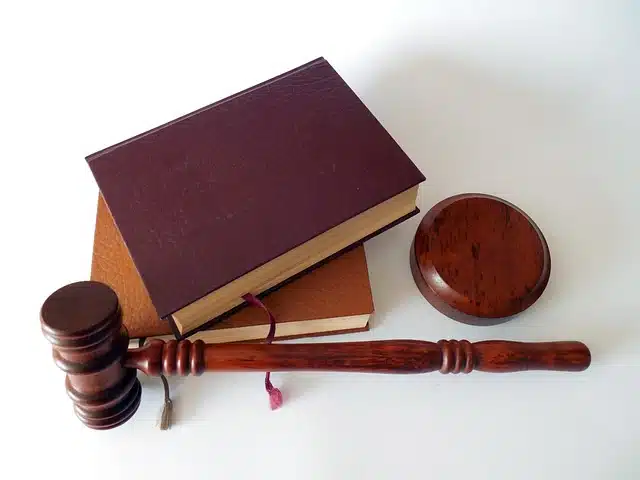Can You File For Guardianship Without A Lawyer

Guardianship is a legal process that allows an individual to make decisions on behalf of another person who is unable to make these decisions due to physical or mental incapacity. In some cases, people may need to file for guardianship without a lawyer. While it is always advisable to seek legal assistance when going through legal processes, filing for guardianship without a lawyer is possible.
The first step in filing for guardianship without a lawyer is to research the laws and regulations in your state regarding guardianship. This will give you an idea of what to expect and what documents you will need to complete the process. It is important to note that each state has its own laws and regulations regarding guardianship.
Once you have researched the laws and regulations in your state, the next step is to obtain the necessary forms. These forms can usually be found online or at your local courthouse. It is important to fill out these forms accurately and completely. Any mistakes or omissions could delay or even prevent the guardianship from being granted.
After completing the necessary forms, you will need to file them with the court. This will typically require paying a fee and submitting the forms to the appropriate court. Once filed, the court will schedule a hearing to determine if the guardianship is necessary and appropriate.
During the hearing, it is important to present evidence supporting the need for guardianship. This evidence could include medical records, statements from doctors or caregivers, and testimony from witnesses. The judge will consider all of the evidence before making a decision regarding guardianship.
While it is possible to file for guardianship without a lawyer, it is important to understand that this is a complex legal process. There are many potential pitfalls and complications that could arise during the process. Seeking legal assistance can help ensure that your rights and the rights of the person you are seeking guardianship for are protected throughout the process.
In conclusion, while it is possible to file for guardianship without a lawyer, it is advisable to seek legal assistance when going through this process. Understanding the laws and regulations in your state, obtaining the necessary forms, and presenting evidence to support the need for guardianship are all important steps in filing for guardianship without a lawyer.
Steps to Take When Filing for Guardianship Without a Lawyer
Filing for guardianship without a lawyer can seem like a daunting task, but it is possible to do it yourself if you are prepared and understand the process. Here are some steps to take when filing for guardianship without a lawyer:
1. Research the requirements: Every state has different requirements for guardianship, so it’s important to research the specific laws in your state. You will need to find out what forms you need to fill out, what information you need to provide, and any other requirements.
2. Fill out the forms: Once you have researched the requirements, you will need to fill out the necessary forms. Make sure to read all of the instructions carefully and provide all of the required information. Remember that any mistakes or omissions can delay the process or even result in your petition being denied.
3. File the forms: After you have filled out the forms, you will need to file them with the court. You may need to pay a filing fee, so be prepared for this expense. Make sure to keep copies of all of the forms for your own records.
4. Serve notice: You will need to serve notice of the guardianship petition to all interested parties, including the parents of the child or children involved. This means that you will need to provide them with a copy of the petition and notify them of the hearing date.
5. Attend the hearing: Once you have filed the forms and served notice, you will need to attend the hearing. This is where you will present your case to the judge and explain why you believe guardianship is necessary. Be prepared to answer any questions the judge may have and provide any additional information that may be requested.
6. Follow up: After the hearing, the judge will make a decision about the guardianship. If the judge grants guardianship, you will need to follow up with any additional paperwork or requirements. If the judge denies the petition, you may need to explore other options or consider hiring a lawyer.
Filing for guardianship without a lawyer can be a complex process, but by taking these steps and being prepared, you can successfully navigate the legal system and ensure that the best interests of the child or children involved are protected.
Navigating Court Procedures for Guardianship Proceedings
Guardianship proceedings can be a complex legal process that involves significant decision-making and responsibilities. Navigating the court procedures for guardianship proceedings requires careful planning, patience, and understanding of the laws involved.
The first step in navigating court procedures for guardianship proceedings is to understand the basics of guardianship. A guardianship is a legal relationship where a court appoints a person, called a guardian, to make decisions for an incapacitated individual, called a ward. The guardian has the authority to make decisions about the ward’s personal, financial, and medical affairs.
Before initiating guardianship proceedings, it is important to consult with an attorney who specializes in this area of law. They can provide guidance on the legal requirements, the court procedures, and help prepare all the necessary documentation for filing the petition for guardianship.
Once the petition for guardianship is filed, the court will schedule a hearing to determine if the proposed guardian is qualified and suitable to act as the ward’s guardian. During the hearing, the judge will consider evidence presented by both parties, including medical reports, financial statements, and testimony from witnesses.
If the court approves the guardianship, the appointed guardian will have a range of duties and responsibilities, including managing the ward’s finances, making healthcare decisions, and ensuring the ward’s basic needs are met.
It is essential to understand that guardianship proceedings vary from state to state, and there may be additional requirements depending on your location. It is therefore critical to work with a local attorney who is familiar with the specific laws of your state.

In conclusion, navigating court procedures for guardianship proceedings is a complicated process that requires knowledge of the law, patience, and careful planning. Seeking professional advice and being prepared can make the process much smoother and ultimately ensure the best possible outcome for the ward.
Tips for Preparing Your Case for Guardianship Without a Lawyer
If you’re considering guardianship for a loved one who is unable to make decisions on their own behalf, it’s important to understand the legal process involved. While hiring a lawyer may be helpful, it’s not always necessary – and if you’re not able to afford one, you can still prepare your case effectively. In this article, we’ll provide some tips for preparing your case for guardianship without a lawyer.
Firstly, it’s important to research the laws in your state regarding guardianship. Each state has its own specific requirements and procedures, so you’ll want to make sure you’re familiar with them before proceeding. You can find this information online or by contacting your local courthouse.
Next, you’ll need to gather evidence to support your case for guardianship. This might include medical records, financial information, and statements from witnesses who can attest to your loved one’s inability to make decisions. Make sure to organize this evidence in a clear and concise manner, as it will be crucial in presenting a strong case.
It’s also important to consider who you will ask to be the guardian. This person should be someone who is trustworthy, responsible, and able to fulfill the duties of a guardian. You may also want to consider a backup guardian in case the first person is unable to fulfill the role.
When you’re ready to file for guardianship, you’ll need to complete and submit the necessary paperwork to the court. This will typically include a petition for guardianship, along with any supporting documentation you have gathered. Again, make sure everything is organized and easy to understand.
Finally, it’s important to be prepared for the court hearing. This can be a nerve-wracking experience, but if you’ve done your research and gathered your evidence, you should feel confident in presenting your case. Be sure to dress appropriately and speak clearly and respectfully to the judge.
In conclusion, preparing your case for guardianship without a lawyer can be a daunting task, but it’s not impossible. By following these tips and doing your research, you can increase your chances of success and ensure that your loved one receives the care and support they need.
Common Mistakes to Avoid When Filing for Guardianship Pro Se
When it comes to filing for guardianship pro se (without an attorney), there are several common mistakes that people make. These mistakes can result in delays, increased costs, and even the denial of the guardianship petition. In this article, we’ll discuss some of the most common mistakes to avoid when filing for guardianship pro se.
One of the biggest mistakes people make is failing to provide sufficient evidence to support their petition for guardianship. This can include medical records, witness statements, and other documentation that demonstrates the need for a guardian. Without this evidence, the court may be hesitant to grant the guardianship petition.
Another common mistake is filing the petition in the wrong court or jurisdiction. Each state has different laws and procedures regarding guardianships, so it’s important to research the requirements for your specific location. Filing in the wrong court or jurisdiction can result in significant delays and added costs.
Additionally, some individuals fail to properly serve notice on all interested parties. The court requires that all interested parties, such as family members and potential guardians, are notified of the guardianship petition. Failure to properly serve notice can result in the denial of the petition.
It’s also important to include all necessary information in the petition, such as the proposed guardian’s qualifications, financial information, and a plan for the ward’s care. Leaving out important details or providing incomplete information can result in the denial of the petition or delays in the process.
Finally, it’s essential to follow all court rules and procedures when filing for guardianship pro se. Failure to do so can result in the dismissal of the petition or other penalties. It’s recommended to consult with court staff or seek legal assistance if you’re unsure about any aspect of the filing process.
In conclusion, filing for guardianship pro se can be a challenging process, but avoiding these common mistakes can make the process smoother and more successful. By providing sufficient evidence, filing in the correct court, serving notice properly, including all necessary information, and following court rules and procedures, you can increase your chances of obtaining guardianship for your loved one.
How to Find Help and Resources When Representing Yourself in Guardianship Cases
If you’re representing yourself in a guardianship case, it can be challenging to navigate the legal system and find the resources you need. Guardianship cases involve important decisions about the care and well-being of vulnerable individuals, such as minors or incapacitated adults, so it’s crucial to have the right help and support.
One resource to consider is legal aid organizations. These groups provide free or low-cost legal services to people who can’t afford private attorneys. They may offer guidance on how to file paperwork, prepare for court hearings, and represent yourself effectively. Some legal aid organizations also have pro bono attorneys who can assist with specific aspects of your case.
Another option is self-help centers. These are often located at courthouses or online and provide information and forms to help you navigate the legal system. Self-help centers may offer workshops or classes on topics relevant to guardianship cases, such as legal terminology or presenting evidence in court.
You can also look for support from advocacy organizations. These groups focus on protecting the rights of individuals in specific populations, such as children or people with disabilities. Advocacy organizations may provide information on legal options, connect you with other families going through similar situations, or offer emotional support.
Additionally, it’s essential to stay organized and informed throughout the process. Keep track of deadlines, important dates, and documents related to your case. Familiarize yourself with the laws and rules governing guardianship cases in your state. Consider creating a timeline or checklist to help you stay on top of tasks and ensure that you’re following the correct procedures.
In conclusion, representing yourself in a guardianship case requires careful planning and research. Utilizing resources such as legal aid organizations, self-help centers, and advocacy groups can provide crucial support and guidance. Staying organized and informed throughout the process will help you present your case effectively and make the best decisions for your loved one’s care and well-being.
Alternatives to Guardianship: Exploring Other Options for Decision-Making Support
As we age, it’s essential to consider what may happen if we are no longer able to make decisions for ourselves. Traditionally, guardianship has been the go-to option for those who need decision-making support. However, there are alternatives to guardianship that individuals and families can explore.
One alternative is power of attorney. This legal document allows someone else to make decisions on your behalf if you become incapacitated. There are different types of power of attorney, including durable power of attorney, which remains in effect even if you become incapacitated. It’s important to choose someone you trust to act as your agent, as they will have significant control over your affairs.
Another option is a living will or advance directive. This document outlines your wishes regarding medical treatment if you’re unable to make decisions for yourself. By creating a living will, you can ensure that your wishes are respected and avoid unnecessary medical interventions.
Trusts can also be used as an alternative to guardianship. A trust is a legal arrangement in which assets are managed by a trustee for the benefit of the trust’s beneficiaries. By setting up a trust, you can ensure that your assets are managed appropriately and provide for your loved ones after you pass away.
Finally, supported decision-making is another alternative to guardianship. This approach involves working with a team of supporters, including friends, family members, and professionals, to make decisions about your life. Supported decision-making puts you at the center of decision-making and allows you to retain as much independence as possible.

In conclusion, guardianship is not the only option for decision-making support. Power of attorney, living wills, trusts, and supported decision-making are all alternatives worth exploring. When considering which option is right for you, it’s essential to consult with an attorney and your loved ones to ensure your wishes are respected.





